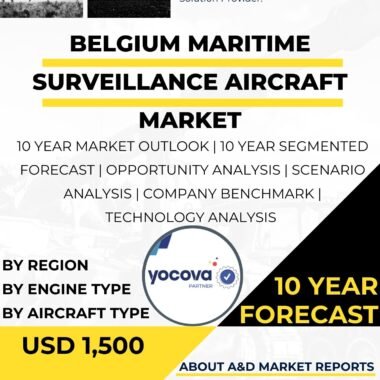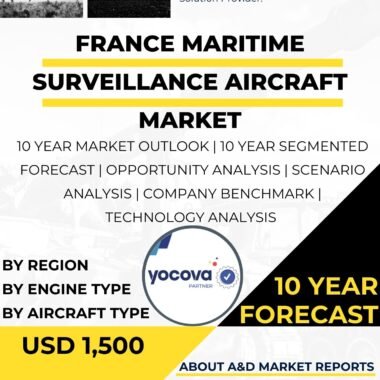Description
Brazil Aerostat Systems Market
The Brazil Aerostat Systems Market is an emerging and promising sector within the country’s defense industry, focused on the development and deployment of aerostat-based surveillance and reconnaissance systems. Aerostats are tethered balloons equipped with sophisticated sensors and communication systems, providing valuable intelligence, surveillance, and reconnaissance (ISR) capabilities for military and homeland security operations. Brazil’s commitment to enhancing its defense capabilities and bolstering its surveillance and border security efforts has positioned it as a significant player in the global Aerostat Systems Market.
The Brazil Aerostat Systems Market caters to diverse defense and security applications, each contributing to the nation’s overall military readiness and situational awareness. One of the primary applications is in the development of aerostat-based ISR systems for military forces. These aerostat systems are deployed in border regions, coastal areas, and strategic locations to monitor enemy movements, detect potential threats, and provide real-time intelligence to ground forces. The height and stability of aerostats offer a unique advantage, allowing for long-range surveillance and broad coverage of large areas.
Moreover, the market focuses on the integration of aerostat-based surveillance systems for homeland security and border surveillance. Aerostats equipped with radar and electro-optical/infrared (EO/IR) sensors are used to monitor illegal border crossings, drug trafficking, and other illicit activities, enhancing national security and supporting law enforcement efforts.
The Brazil Aerostat Systems Market also addresses the role of aerostats in disaster management and humanitarian assistance. During natural disasters or emergency situations, aerostats can be equipped with high-resolution cameras and communication systems to provide real-time aerial imagery, assisting in search and rescue operations and assessing the extent of damage.
The integration of advanced technologies has been instrumental in the development of Aerostat Systems in Brazil. Research and development efforts focus on improving sensor capabilities, data processing, and communication systems to enhance the effectiveness of aerostat-based ISR solutions. The development of Aerostat Systems often involves collaboration between the defense industry, research institutions, and the Brazilian Armed Forces, ensuring that the systems meet the stringent requirements of the country’s defense and security operations.
The export-oriented focus of the Brazil Aerostat Systems Market has expanded its global presence. Brazilian aerostat technology and defense systems have gained international recognition for their reliability, performance, and cost-effectiveness. Brazil places a high priority on responsible arms trade, ensuring that its Aerostat Systems exports are subject to robust end-user controls and abide by international arms transfer agreements.
Brazil’s defense industry actively engages in research and development (R&D) activities to advance Aerostat Systems continuously. Collaboration between the defense industry, research institutions, and the Brazilian Armed Forces fosters innovation and technological advancements in the market. This synergy ensures that Aerostat Systems produced meet the stringent requirements of the Brazilian military and adhere to the highest quality and safety standards.
Moreover, the market benefits from Brazil’s expertise in aerospace engineering, sensor technology, and avionics. Brazilian companies have been at the forefront of developing state-of-the-art Aerostat Systems, addressing the unique challenges of providing reliable and effective aerial surveillance and reconnaissance capabilities.
Despite the impressive progress and benefits of Aerostat Systems, challenges remain in the market. One of the primary challenges is the integration of aerostats with existing ground-based and airborne surveillance systems. Ensuring seamless interoperability and data sharing between aerostats and other defense assets is crucial to optimize the intelligence and situational awareness provided by these systems.
Moreover, the market faces challenges related to environmental factors and maintenance. Aerostats are vulnerable to adverse weather conditions, such as strong winds and lightning, requiring robust tethering and weatherproofing solutions. Regular maintenance and monitoring are also essential to ensure the longevity and reliability of aerostat-based ISR systems.
Looking ahead, the future of the Brazil Aerostat Systems Market remains promising, driven by continuous research and development efforts, international collaborations, and the increasing demand for advanced aerial surveillance and reconnaissance solutions. As defense and security challenges evolve, Brazil’s dedication to innovation and technological prowess will solidify its position as a leading player in the global Aerostat Systems Market. The market’s ability to provide efficient and effective aerostat-based ISR solutions while addressing emerging challenges will enhance the nation’s defense readiness, improve situational awareness, and contribute to global security efforts.




